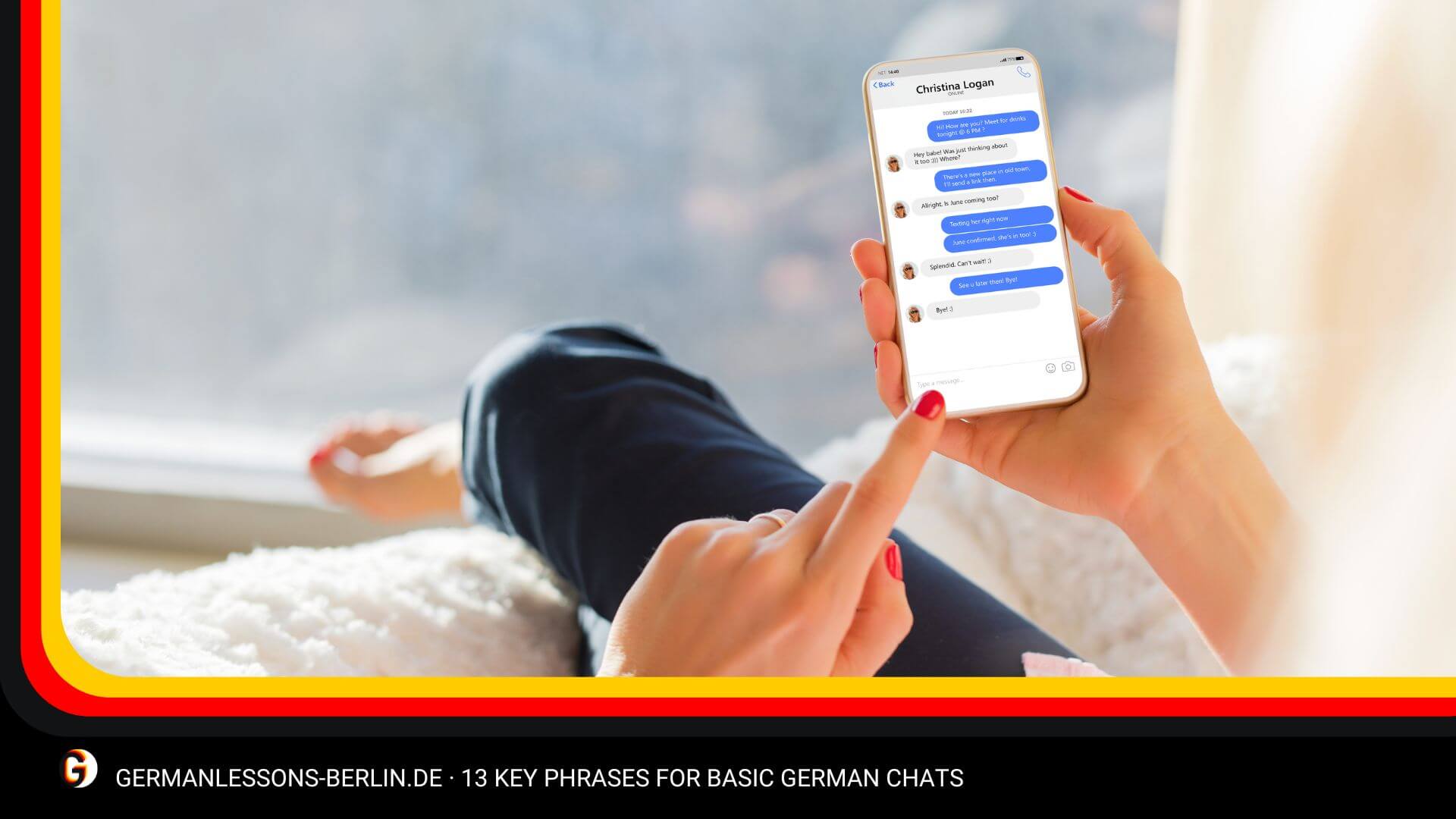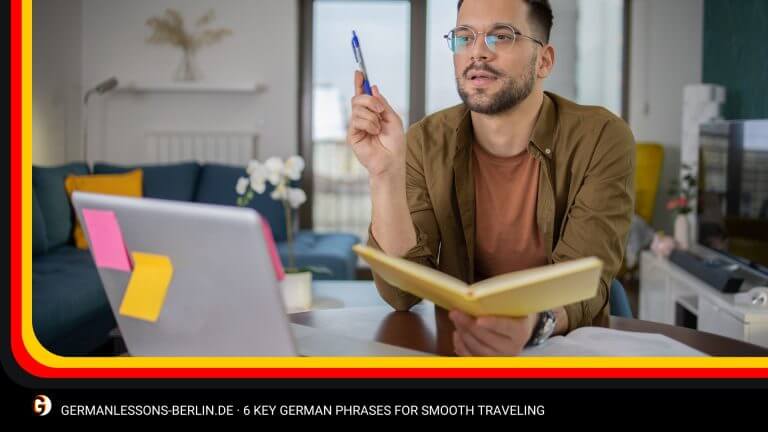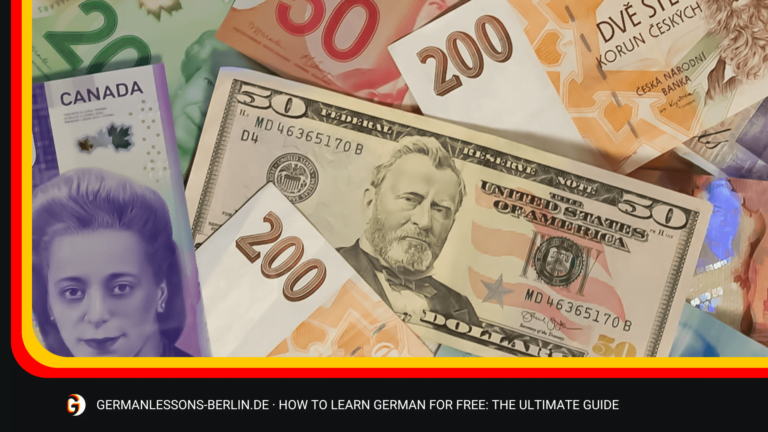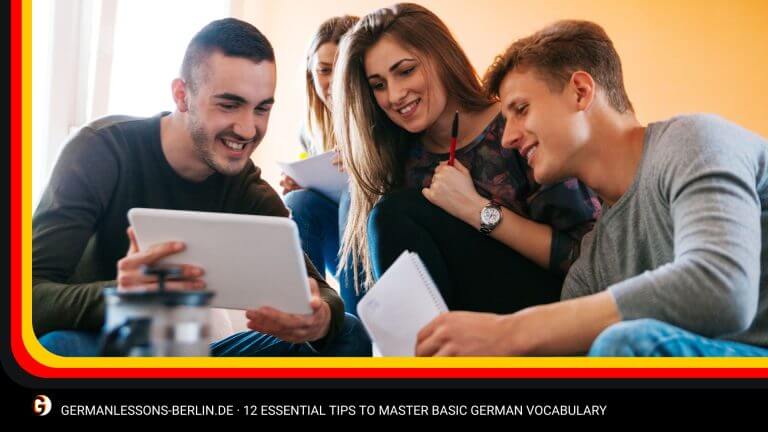I’m thrilled to guide you through 13 essential German phrases that’ll kickstart your conversations. From my days in Berlin, I’ve learned that mastering these basics can open a world of connections. Whether you’re ordering a coffee or making a new friend, these expressions are your gateway to the rich tapestry of German culture. Let’s dive in and get you chatting with confidence—one phrase at a time!
Table of Contents
Key Takeaways
- Greetings and common courtesy expressions are important for starting and maintaining a conversation in German.
- Basic questions can help initiate and continue a conversation with someone in German.
- Knowing how to respond to questions is essential for effective communication in German.
- Learning departure and farewell phrases can help end a conversation politely in German.
Greetings and Salutations
In my journey through various languages, I’ve found that the first five key phrases for greetings and salutations are essential to making a good impression in basic German conversations. When you meet someone, a simple “Hallo” (Hello) or “Guten Tag” (Good day) shows politeness and a basic understanding of the language. In the mornings, “Guten Morgen” (Good morning) starts the day off right, while “Guten Abend” (Good evening) is perfect as the day winds down. Don’t forget “Tschüss” (Bye) or the more formal “Auf Wiedersehen” (Goodbye), which are important when parting ways. Using these phrases correctly can really warm up the beginning of any interaction. Next, I’ll delve into common courtesy expressions, which further demonstrate respect and cultural awareness in your German chats.
Common Courtesy Expressions
Moving on from greetings, I’ll now share the common courtesy expressions that can help you navigate basic German conversations with ease and politeness. It’s important to remember that manners go a long way, especially when you’re trying to make a good impression while speaking a new language. In German, saying “Bitte” (please) and “Danke” (thank you) is as essential as it is in English. If you need to get past someone, a polite “Entschuldigung” (excuse me) can clear your way. Responding with “Gern geschehen” (you’re welcome) after being thanked shows your good manners. And don’t forget, a simple “Es tut mir leid” (I’m sorry) can smooth over small mishaps. Now, let’s turn our attention to some basic questions for interaction, another cornerstone of engaging in German dialogue.
Basic Questions for Interaction
Transitioning from common courtesy expressions, I’ll now delve into essential questions that facilitate basic interactions in German. Engaging with people often begins with a simple inquiry, so here’s a list to help you start those conversations:
- Wie geht’s Ihnen? – How are you? This is a polite way to show interest in someone’s well-being.
- Was machen Sie beruflich? – What do you do for a living? This question can open up a dialogue about occupations.
- Können Sie das bitte wiederholen? – Could you please repeat that? It’s crucial for clarifying something you didn’t catch the first time.
- Wo ist die Toilette? – Where is the restroom? A practical question that’s always good to know in any language.
These questions are the building blocks for engaging in meaningful exchanges.
Responding to Questions
I’ll now guide you through key phrases for responding to questions in German, ensuring you’re equipped for a smooth conversation. When someone asks you something, it’s polite and engaging to answer clearly. Here’s a simple table to help you remember some of the essential responses:
| German | English |
|---|---|
| Ja, sicher. | Yes, surely. |
| Nein, leider nicht. | No, unfortunately not. |
| Vielleicht später. | Maybe later. |
| Ich weiß es nicht. | I don’t know. |
Using these phrases will help you interact effectively. Remember, the key to mastering a language is practice, so don’t hesitate to use these responses in your next German conversation. Your efforts will be rewarded with improved fluency and confidence.
Departure and Farewells
As we wrap up our conversations, it’s crucial to know several key German phrases for saying goodbye. Whether you’re ending a chat with a new friend or bidding farewell at a gathering, these expressions convey your parting sentiments with grace. Here’s a list to help you leave a lasting impression:
- Tschüss! – A casual “Bye!” that’s perfect for informal settings.
- Auf Wiedersehen! – Literally “Until we see each other again,” it’s a formal way to say “Goodbye.”
- Bis bald! – “See you soon!” when you’re expecting to meet again in the near future.
- Mach’s gut! – Means “Take care!” and it’s a friendly way to wish someone well as you part ways.
Using these phrases appropriately ensures a polite and thoughtful departure.
Frequently Asked Questions
How Do You Express Preferences and Likes in German When Discussing Hobbies or Interests?
When I want to express my hobbies or interests in German, I use phrases like “Ich mag” or “Ich liebe” followed by the activity. For example, “Ich mag schwimmen” means “I like swimming.” If I prefer one thing over another, I might say “Ich bevorzuge” with my choice. So, if I’m more into cycling than running, I’d say “Ich bevorzuge Radfahren zu Laufen.” It’s pretty straightforward once you get the hang of it.
What Are Some German Phrases to Use When Discussing Weather Variations or Seasonal Changes?
I often talk about the weather to break the ice. When it’s sunny, I’ll say, “Es ist sonnig,” and if it’s cold, I’ll mention, “Es ist kalt.” To discuss rain, I use “Es regnet,” and for snow, “Es schneit.” Seasonal changes are also a common topic. I’ll comment, “Der Frühling ist da” when spring arrives or “Der Herbst bringt bunte Blätter,” noting the colorful leaves in fall. It’s a great conversation starter!
Can You Provide Examples of How to Give Compliments in German on Someone’s Appearance or Work?
Certainly! To compliment someone’s appearance in German, you could say “Du siehst toll aus!” which means “You look great!” If you want to praise someone’s work, you might say “Deine Arbeit ist beeindruckend,” translating to “Your work is impressive.” It’s always nice to acknowledge effort, so adding “Ich schätze deine harte Arbeit” can go a long way, meaning “I appreciate your hard work.” These phrases show admiration and can brighten someone’s day.
What Are the German Equivalents for Expressing Uncertainty or Making Polite Requests in a Conversation?
Expressing uncertainty in German, I’d use phrases like “Ich bin mir nicht sicher” (I’m not sure) or “Vielleicht” (Maybe). For polite requests, I’d say “Könnten Sie bitte…” (Could you please…) or “Würden Sie so freundlich sein…” (Would you be so kind as to…). These phrases help me navigate conversations respectfully, ensuring I’m clear yet courteous when I’m uncertain or asking for something. They’re essential for maintaining a polite tone in discussions.
How Do You Navigate a Conversation in German When You Need to Ask for Clarification or Repetition Due to Misunderstanding?
When I’m conversing in German and don’t quite catch something, I usually ask for clarification. I’ll say “Könnten Sie das bitte wiederholen?” or “Ich verstehe nicht ganz, können Sie das erläutern?” It’s about being polite but also clear that I need the information repeated or explained. Asking questions like this helps me keep the conversation flowing and ensures I’m really understanding the exchange. It’s a vital part of communicating effectively in any language.
Conclusion
Armed with these 13 phrases, I’ve found that the door to German conversation swings wide open. From a cheery ‘Guten Tag’ to a heartfelt ‘Danke,’ each expression has been a stepping stone in my linguistic journey. They’re more than mere words; they’re keys to connection, understanding, and friendship. So go ahead, give them a try. With a little practice, you’ll be chatting away and experiencing the rich tapestry of German culture in no time. Auf Wiedersehen!




